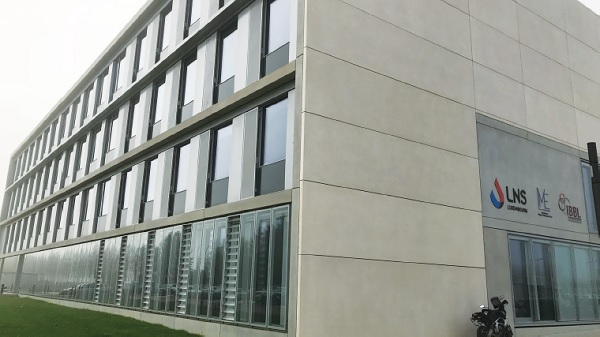
At the end of November, the Integrated Biobank of Luxembourg (IBBL) moved its staff, its equipment and its 500,000 samples from Luxembourg City to Dudelange.
In its new, permanent building connected to the Laboratoire Nationale de Santé (LNS), IBBL has more than doubled its space. The laboratories and storage facilities have also been specifically designed for the biobank’s needs, allowing it to expand its operations and services.
When IBBL opened its doors in 2010 next to the the Centre Hospitalier de Luxembourg (CHL), the biobank counted a staff of six. Seven years later, 50 technicians, researchers, project managers, informaticians and administrative staff work at IBBL. This increase in staff reflects a substantial growth in activities, service contracts, projects and biological samples. So much so, that the capacity of the former building limited the biobank’s continuing development. Recognising this problem back in 2015, the Ministry of Health and the Ministry of Higher Eduction and Research offered IBBL the opportunity to move into a new building that was under construction in Dudelange, in the south of Luxembourg.
The new building is connected to the Laboratoire National de Santé and shared with the Laboratoire de Médecine Vétérinaire de l'Etat. With 2,000 m², including 500 m² for sample storage and logistics and 1,000 m² for the laboratories, the move enables IBBL to expand its operations and the services it provides to its partners and clients.
In addition to the increase in space, the construction of a new building gave IBBL the opportunity to work closely with the architects to design the space for its needs. “The public buildings administration (ABP) and all the design offices working for them have done a fabulous job in translating our operational needs into architectural and technical requirements”, said Dominic Allen, Chief Operating Officer of IBBL. The new laboratories were designed to separate specific activities and avoid cross-contamination. There is, for instance, one room dedicated to DNA work, while RNA work is done in a different room. In addition, the new building provides space and opportunity for new equipment, new facilities such as a freezer room and more automation in the laboratory.
The move was carefully planned and executed. It was essential for IBBL to guarantee the continuity of its services. Certain critical equipment was even setup and validated in duplicate in Dudelange before the corresponding lab work was moved. A moving company specialised in transporting laboratory equipment was in charge of the move to ensure safe packaging and transportation of the samples and equipment. The 500,000 blood, urine, saliva, tissue and stool samples were kept in their respective freezers and tanks and loaded onto trucks equipped with generators. As an additional safety precaution, the trucks carrying biological samples were escorted by the Grand Ducale police.








